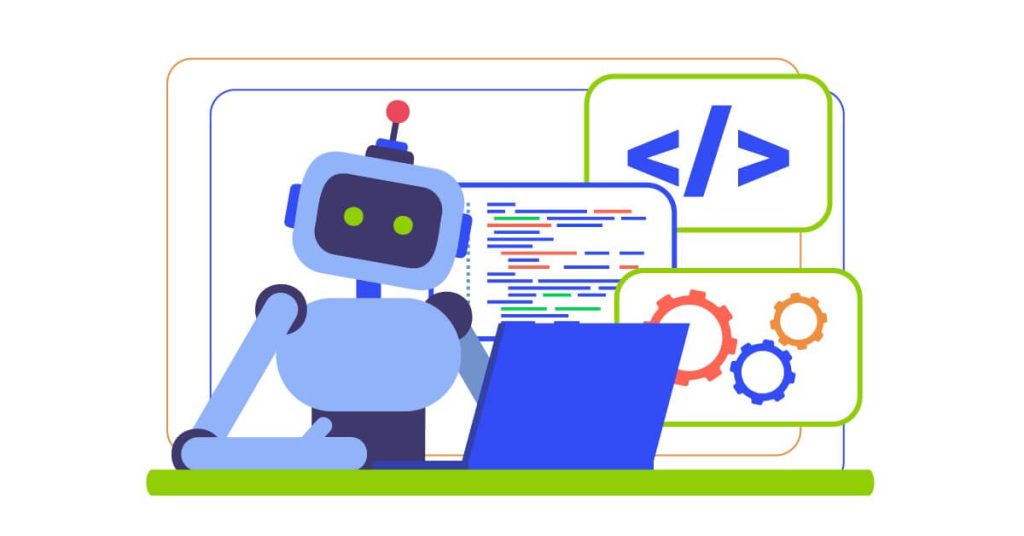Power of Adaptive AI: An Introduction
Adaptive AI (Artificial Intelligence) is no longer a novel concept. In the course of our regular operations, it has been gradually incorporated, and this process is currently ongoing. The power of Adaptive AI in other sectors, such as the healthcare industry, the financial sector, and customer service, with the goals of enhancing decision-making, automating administrative processes, and improving the overall customer experience.
For instance, chatbots and AI-powered assistants may provide fast advice and support to clients, while artificially intelligent algorithms can aid financial companies in identifying crimes and making more informed judgments about investments.
Important Characteristics and Capacities of Adaptive AI
-
Continuous Learning
The capacity to continually learn and modify their models or techniques depending on fresh data is a distinctive feature of adaptive artificial intelligence systems. As they come into contact with new knowledge, they can modify their performance also they make decisions, which ultimately leads to improvements in their correctness and performance.
-
A Loop of Feedback
To improve their models and create adjustments to their forecasts or actions, adaptive AI systems depend on input from users, data collected in actual time, or other sources. The criticism they get enables them to learn, see any faults or inconsistencies, and adjust either their understanding or their behavior appropriately.
-
Personalization
With the power of Adaptive AI, the systems can personalize their replies or suggestions to specific users by knowing their preferences, behaviors, or past data. It can able to modify its outputs to cater to the particular requirements of users and provide more individualized and pertinent knowledge.
-
Context Awareness
Artificial Intelligence methods which are adaptive take into consideration the environment in which they exist. For the aim of familiarizing their reactions or judgments appropriately, they take into consideration environmental elements, user communication, and actual-time data collection. They can deliver outputs that are more precise and pertinent to the situation as a result of this.
Power of Adaptive AI in Driving Future Innovation

Adaptive AI (Artificial Intelligence) provides several major advantages, including enhanced accuracy, customization, and scalability, decision-making in real-time, and decreased costs associated with maintenance. However, to fully appreciate the advantages and enjoy the rewards that come with them, it is necessary to solve the problems that are associated with the quality of the data, the amount of time required for training, bias, interpretability, and security.
Companies must have access to data of high quality, be prepared to invest in the training and monitoring of the AI model and be willing to take security measures to secure their systems to limit the number of issues they face. In the face of adversities, businesses can seize control and use the power of Adaptive AI (Artificial Intelligence). In the future, intelligent systems will be able to adapt and continually learn to provide better results for both people and enterprises. This has the potential to transform industries, drive innovation, and move civilization toward a future when these things will be possible.
Benefits and Power of Adaptive AI
1) Adaptive AI in Healthcare
When you use Adaptive Artificial Intelligence has the impending to improve patients’ ability to get individualized medical care, predict the results of their therapies, and detect diseases earlier.
Adaptive Artificial Intelligence, for instance, might be applied to evaluate patient data, which includes medical history, test results, and lifestyle characteristics, to identify those who are at risk for certain diseases. It is also possible to use it to monitor the development of the patient and to make any required adjustments to the treatment techniques.
2) Power of Adaptive AI in Manufacturing
The capabilities of artificial intelligence are limited to the imagination of humans. Adaptive Artificial Intelligence may make use of ML and data analytics to automate processes that were previously performed manually and streamline workflows across the firm. It provides real-time insights to key stakeholders in enterprises.
Improvements in efficiency and production, as well as the elimination of supply delays, are all possible possibilities for organizations. Personalization of interactions with customers is possible, and you can swiftly respond to any unexpected business opportunities. With Adaptive AI, a fundamental business engine may raise sales, cut expenses, and enhance competitiveness and efficiency.
3) Adaptive AI in Transportation
Adaptive Artificial Intelligence is being used by firms in the transportation and logistics industries to optimize route planning, simplify the handling of fleets, and substantially enhance supply chain efficiency. AI algorithms can make intelligent judgments by assessing real-time data on travel patterns, the climate, and consumer needs. These decisions may help cut the amount of time it takes to deliver packages, lower the amount of fuel used, and increase overall operational efficiency.
Not only can these findings be used to enhance marketing campaigns and enhance the quality of public transportation solutions, but they can also be utilized to give improved on-demand transportation alternatives that are flexible in terms of timetables.
4) Power of Adaptive AI in Finance
It is necessary for present finance players to develop additional predictive strategies and to be agents of innovation. With Artificial Intelligence (AI) and Machine Learning (ML) built into Workday Adaptive Development, doing this task is now simpler than it has ever been. In situations when there is no evidence of degradation when using the conventional method, adaptive artificial intelligence makes it possible for financial institutions to deploy better models. It even enhances market efficiency. The capabilities of these models are dependent on having a solid foundation in machine learning.
Some Best Practices of Adaptive AI
When operating an Adaptive Learning pipeline, there are a few aspects that should be kept in mind about the following:
- To ensure that the AI system acquires consistent observations, the data processing processes must be maintained in a manner that is consistent across all new data sources.
- The process by which the artificial intelligence system will convert and store particular findings must remain consistent across the whole of the pipeline.
- Access to feedback on the Adaptive Learning technique must be easily accessible to ensure that the system is kept up to date.
Bottom Line
Thus, the enhanced analytics that are provided by Adaptive AI Development Services make it possible to get deeper insights into corporate operations. Because of the rise of digitalization, data analytics has become an increasingly important focus for leaders in today’s world. Having a more in-depth grasp of data may help firms enjoy the advantages of adaptive artificial intelligence more rapidly.



